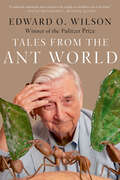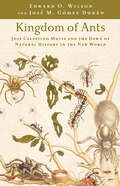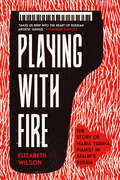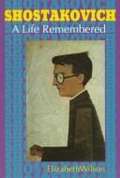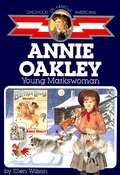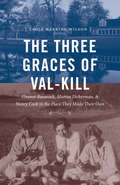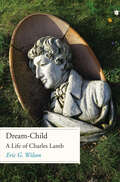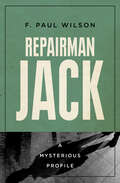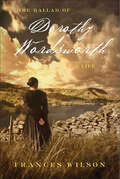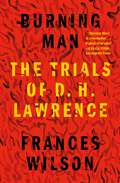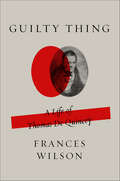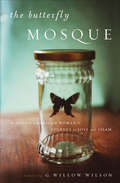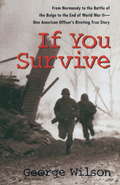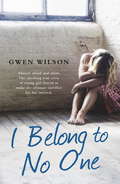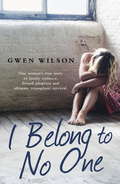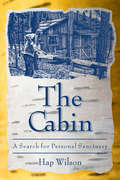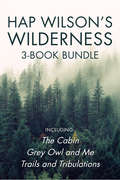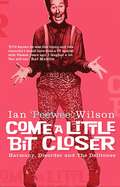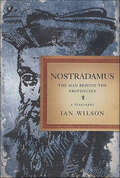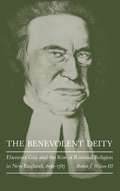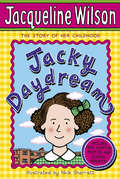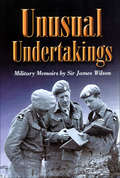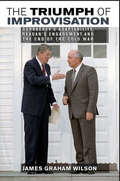- Table View
- List View
Tales from the Ant World
by Edward O. WilsonEdward O. Wilson recalls his lifetime with ants, from his first boyhood encounters in the woods of Alabama to perilous journeys into the Brazilian rainforest. “Ants are the most warlike of all animals, with colony pitted against colony,” writes E.O. Wilson, one of the world’s most beloved scientists, “their clashes dwarf Waterloo and Gettysburg.” In Tales from the Ant World, two-time Pulitzer Prize-winner Wilson takes us on a myrmecological tour to such far-flung destinations as Mozambique and New Guinea, the Gulf of Mexico’s Dauphin Island and even his parent’s overgrown backyard, thrillingly relating his nine-decade-long scientific obsession with over 15,000 ant species. Animating his scientific observations with illuminating personal stories, Wilson hones in on twenty-five ant species to explain how these genetically superior creatures talk, smell, and taste, and more significantly, how they fight to determine who is dominant. Wryly observing that “males are little more than flying sperm missiles” or that ants send their “little old ladies into battle,” Wilson eloquently relays his brushes with fire, army, and leafcutter ants, as well as more exotic species. Among them are the very rare Matabele, Africa’s fiercest warrior ants, whose female hunters can carry up to fifteen termites in their jaw (and, as Wilson reports from personal experience, have an incredibly painful stinger); Costa Rica’s Basiceros, the slowest of all ants; and New Caledonia’s Bull Ants, the most endangered of them all, which Wilson discovered in 2011 after over twenty years of presumed extinction. Richly illustrated throughout with depictions of ant species by Kristen Orr, as well as photos from Wilsons’ expeditions throughout the world, Tales from the Ant World is a fascinating, if not occasionally hair-raising, personal account by one of our greatest scientists and a necessary volume for any lover of the natural world.
Kingdom of Ants: José Celestino Mutis and the Dawn of Natural History in the New World
by Edward O. Wilson José M. DuránOne of the earliest New World naturalists, José Celestino Mutis began his professional life as a physician in Spain and ended it as a scientist and natural philosopher in modern-day Colombia. Drawing on new translations of Mutis's nearly forgotten writings, this fascinating story of scientific adventure in eighteenth-century South America retrieves Mutis's contributions from obscurity.In 1760, the 28-year-old Mutis—newly appointed as the personal physician of the Viceroy of the New Kingdom of Granada—embarked on a 48-year exploration of the natural world of northern South America. His thirst for knowledge led Mutis to study the region's flora, become a professor of mathematics, construct the first astronomical observatory in the Western Hemisphere, and amass one of the largest scientific libraries in the world. He translated Newton's writings and penned essays about Copernicus; lectured extensively on astronomy, geography, and meteorology; and eventually became a priest. But, as two-time Pulitzer Prize–winner Edward O. Wilson and Spanish natural history scholar José M. Gómez Durán reveal in this enjoyable and illustrative account, one of Mutis's most magnificent accomplishments involved ants. Acting at the urging of Carl Linnaeus—the father of taxonomy—shortly after he arrived in the New Kingdom of Granada, Mutis began studying the ants that swarmed everywhere. Though he lacked any entomological training, Mutis built his own classification for the species he found and named at a time when New World entomology was largely nonexistent. His unorthodox catalog of army ants, leafcutters, and other six-legged creatures found along the banks of the Magdalena provided a starting point for future study.Wilson and Durán weave a compelling, fast-paced story of ants on the march and the eighteenth-century scientist who followed them. A unique glance into the early world of science exploration, Kingdom of Ants is a delight to read and filled with intriguing information.
Playing with Fire: The Story of Maria Yudina, Pianist in Stalin's Russia
by Elizabeth WilsonThe first full biography of the fearless and brilliant Maria Yudina, a legendary pianist who was central to Russian intellectual life Maria Yudina was no ordinary musician. An incredibly popular pianist, she lived on the fringes of Soviet society and had close friendships with such towering figures as Boris Pasternak, Pavel Florensky, and Mikhail Bakhtin. Legend has it that she was Stalin&’s favorite pianist. Yudina was at the height of her fame during WWII, broadcasting almost daily on the radio, playing concerts for the wounded and troops in hospitals and on submarines, and performing for the inhabitants of besieged Leningrad. By the last years of her life, she had been dismissed for ideological reasons from the three institutions where she taught. And yet according to Shostakovich, Yudina remained &“a special case. . . . The ocean was only knee-deep for her.&” In this engaging biography, Elizabeth Wilson sets Yudina&’s extraordinary life within the context of her times, where her musical career is measured against the intense intellectual and religious ferment of the post-revolutionary period and the ensuing years of Soviet repression.
Shostakovich: A Life Remembered
by Elizabeth WilsonShostakovich: A Life Remembered is a unique study of the great composer Dimitri Shostakovich drawn from the reminiscences and reflections of his contemporaries. Using much material never previously published in English, as well as personal accounts from interviews and specially commissioned articles, Elizabeth Wilson has built a fascinating chronicle of Shostakovich's life.
Annie Oakley: Young Markswoman
by Ellen WilsonFocuses on the childhood of the famous American sharpshooter.
The Three Graces of Val-Kill: Eleanor Roosevelt, Marion Dickerman, and Nancy Cook in the Place They Made Their Own
by Emily Herring WilsonThe Three Graces of Val-Kill changes the way we think about Eleanor Roosevelt. Emily Wilson examines what she calls the most formative period in Roosevelt's life, from 1922 to 1936, when she cultivated an intimate friendship with Marion Dickerman and Nancy Cook, who helped her build a cottage on the Val-Kill Creek in Hyde Park on the Roosevelt family land. In the early years, the three women--the "three graces," as Franklin Delano Roosevelt called them--were nearly inseparable and forged a female-centered community for each other, for family, and for New York's progressive women. Examining this network of close female friends gives readers a more comprehensive picture of the Roosevelts and Eleanor's burgeoning independence in the years that marked Franklin's rise to power in politics. Wilson takes care to show all the nuances and complexities of the women's relationship, which blended the political with the personal. Val-Kill was not only home to Eleanor Roosevelt but also a crucial part of how she became one of the most admired American political figures of the twentieth century. In Wilson's telling, she emerges out of the shadows of monumental histories and documentaries as a woman in search of herself.
Dream-Child: A Life of Charles Lamb
by Eric G. WilsonAn in-depth look into the life of Romantic essayist Charles Lamb and the legacy of his work A pioneer of urban Romanticism, essayist Charles Lamb (1775–1834) found inspiration in London’s markets, theaters, prostitutes, and bookshops. He prized the city’s literary scene, too, where he was a star wit. He counted among his admirers Mary Shelley, William Wordsworth, and Samuel Taylor Coleridge. His friends valued in his conversation what distinguished his writing style: a highly original blend of irony, whimsy, and melancholy. Eric G. Wilson captures Lamb’s strange charm in this meticulously researched and engagingly written biography. He demonstrates how Lamb’s humor helped him cope with a life‑defining tragedy: in a fit of madness, his sister Mary murdered their mother. Arranging to care for her himself, Lamb saved her from the gallows. Delightful when sane, Mary became Charles’s muse, and she collaborated with him on children’s books. In exploring Mary’s presence in Charles’s darkly comical essays, Wilson also shows how Lamb reverberates in today’s experimental literature.
Repairman Jack (Mysterious Profiles)
by F. Paul WilsonThe New York Times–bestselling author of The Keep tells the real and fictional origins of the mysterious man who battles criminals and the supernatural. In 1984, Repairman Jack debuted in F. Paul Wilson&’s horror thriller The Tomb. Jack would go on to star in twenty-three novels, ten short stories, and a graphic novel. But how did the antithesis of James Bond and Jason Bourne get his start in the battle between good and evil? In this essay, Wilson lets his readers in on how his beloved hero came to be. Wilson begins his personal story after he scored a hit with The Keep, when he found his inspiration for his next book in a dream. He discusses selecting and researching a monster, as well as developing Jack, his supporting cast, and settling on a villain. He also shares how the first title in the series came to be—it wasn&’t always The Tomb. Wilson closes with Jack&’s fictional backstory and his thoughts on Jack&’s potential future—if there is one . . .Praise for Repairman Jack &“One of the all-time great characters in one of the all-time great series.&” —Lee Child, #1 New York Times–bestselling author of the Jack Reacher series &“Repairman Jack is one of the most original and intriguing characters to arise out of contemporary fiction in ages. His adventures are hugely entertaining.&” —Dean Koontz, #1 New York Times–bestselling author of Strangers
How Medicine Works and When It Doesn't: Learning Who to Trust to Get and Stay Healthy
by F. Perry WilsonBlending personal anecdotes with hard science, an accomplished physician, researcher, and science communicator gives you the tools to avoid medical misinformation and take control of your health: "A brilliant step toward patients and physicians alike reclaiming a sense of confidence in a system that often feels overwhelming and mismanaged" (Gabby Bernstein, #1 New York Times bestselling author of The Universe Has Your Back). We live in an age of medical miracles. Never in the history of humankind has so much talent and energy been harnessed to cure disease. So why does it feel like it&’s getting harder to live our healthiest lives? Why does it seem like &“experts&” can&’t agree on anything, and why do our interactions with medical professionals feel less personal, less honest, and less impactful than ever? Through stories from his own practice and historical case studies, Dr. F. Perry Wilson, a physician and researcher from the Yale School of Medicine, explains how and why the doctor-patient relationship has eroded in recent years and illuminates how profit-driven companies—from big Pharma to healthcare corporations—have corrupted what should have been medicine&’s golden age. By clarifying the realities of the medical field today, Dr. Wilson gives readers the tools they need to make informed decisions, from evaluating the validity of medical information online to helping caregivers advocate for their loved ones, in the doctor&’s office and with the insurance company. Dr. Wilson wants readers to understand medicine and medical science the way he does: as an imperfect and often frustrating field, but still the best option for getting well. To restore trust between patients, doctors, medicine, and science, we need to be honest, we need to know how to spot misinformation, and we need to avoid letting skepticism ferment into cynicism. For it is only by redefining what &“good medicine&” is—science that is well-researched, rational, safe, effective, and delivered with compassion, empathy, and trust—that the doctor-patient relationship can be truly healed.
The Ballad of Dorothy Wordsworth: A Life
by Frances WilsonDescribed by the writer and opium addict Thomas De Quincey as "the very wildest . . . person I have ever known," DorothyWordsworth was neither the self-effacing spinster nor the sacrificial saint of common telling. A brilliant stylist in her own right, Dorothy was at the center of the Romantic movement of the early nineteenth century. She was her brother William Wordsworth's inspiration, aide, and most valued reader, and a friend to Coleridge; both borrowed from her observations of the world for their own poems.William wrote of her, "She gave me eyes, she gave me ears."In order to remain at her brother's side, Dorothy sacrificed both marriage and comfort, jealously guarding their close-knit domesticity—one marked by a startling freedom from social convention. In the famed Grasmere Journals, Dorothy kept a record of this idyllic life together. The tale that unfolds through her brief, electric entries reveals an intense bond between brother and sister, culminating in Dorothy's dramatic collapse on the day of William's wedding to their childhood friend Mary Hutchinson. Dorothy lived out the rest of her years with her brother and Mary. The woman who strode the hills in all hours and all weathers would eventually retreat into the house for the last three decades of her life.In this succinct, arresting biography, Frances Wilson reveals Dorothy in all her complexity. From the coiled tension of Dorothy's journals, she unleashes the rich emotional life of a woman determined to live on her own terms, and honors her impact on the key figures of Romanticism.
Burning Man: The Trials of D. H. Lawrence
by Frances WilsonShortlisted for the James Tait Black PrizeAn electrifying, revelatory new biography of D. H. Lawrence, with a focus on his difficult middle years“Never trust the teller,” wrote D. H. Lawrence, “trust the tale.” Everyone who knew him told stories about Lawrence, and Lawrence told stories about everyone he knew. He also told stories about himself, again and again: a pioneer of autofiction, no writer before Lawrence had made so permeable the border between life and literature. In Burning Man: The Trials of D. H. Lawrence, acclaimed biographer Frances Wilson tells a new story about the author, focusing on his decade of superhuman writing and travel between 1915, when The Rainbow was suppressed following an obscenity trial, and 1925, when he was diagnosed with tuberculosis.Taking after Lawrence’s own literary model, Dante, and adopting the structure of The Divine Comedy, Burning Man is a distinctly Lawrentian book, one that pursues Lawrence around the globe and reflects his life of wild allegory. Eschewing the confines of traditional biography, it offers a triptych of lesser-known episodes drawn from lesser-known sources, including tales of Lawrence as told by his friends in letters, memoirs, and diaries. Focusing on three turning points in Lawrence’s pilgrimage (his crises in Cornwall, Italy, and New Mexico) and three central adversaries—his wife, Frieda; the writer Maurice Magnus; and his patron, Mabel Dodge Luhan—Wilson uncovers a lesser-known Lawrence, both as a writer and as a man.Strikingly original, superbly researched, and always revelatory, Burning Man is a marvel of iconoclastic biography. With flair and focus, Wilson unleashes a distinct perspective on one of history’s most beloved and infamous writers.
Guilty Thing: A Life of Thomas De Quincey
by Frances WilsonNational Book Critics Circle Award, Biographers International Organization Plutarch Award and Los Angeles Times Book Prize FinalistNew York Times Book Review, Times Literary Supplement and The Guardian Best Books of 2016Thomas De Quincey was an obsessive. He was obsessed with Wordsworth and Coleridge, whose Lyrical Ballads provided the script to his life, and by the idea of sudden death. Running away from school to pursue the two poets, De Quincey insinuated himself into their world. Basing his sensibility on Wordsworth’s and his character on Coleridge’s, he forged a triangle of unusual psychological complexity.Aged twenty-four, De Quincey replaced Wordsworth as the tenant of Dove Cottage, the poet’s former residence in Grasmere. In this idyllic spot he followed the reports of the notorious Ratcliffe Highway murders of 1811, when two families, including a baby, were butchered in their own homes. In his opium-soaked imagination the murderer became a poet while the poet became a murderer. Embedded in On Murder as One of the Fine Arts, De Quincey’s brilliant series of essays, Frances Wilson finds the startling story of his relationships with Wordsworth and Coleridge.Opium was the making of De Quincey, allowing him to dissolve self-conflict, eliminate self-recrimination, and divest himself of guilt. Opium also allowed him to write, and under the pseudonym “The Opium-Eater” De Quincey emerged as the strangest and most original journalist of his age. His influence has been considerable. Poe became his double; Dostoevsky went into exile with Confessions of an English Opium-Eater in his pocket; and Charles Dickens, Oscar Wilde, George Orwell, Alfred Hitchcock, and Vladimir Nabokov were all De Quincey devotees. There have been other biographies of Thomas De Quincey, but Guilty Thing is the first to be animated by the spirit of De Quincey himself. Following the growth of his obsessions from seed to full flowering and tracing the ways they intertwined, Frances Wilson finds the master key to De Quincey’s vast Piranesian mind. Unraveling a tale of hero worship and revenge, Guilty Thing brings the last of the Romantics roaring back to life and firmly establishes Wilson as one of our foremost contemporary biographers.
The Butterfly Mosque: A Memoir
by G. Willow Wilson“The extraordinary story of an all-American girl’s conversion to Islam and her ensuing romance with a young Egyptian man, “The Butterfly Mosque” is a stunning articulation of a Westerner embracing the Muslim world. When G. Willow Wilson already an accomplished writer on modern religion and the Middle East at just twenty-seven leaves her atheist parents in Denver to study at Boston University, she enrolls in an Islamic Studies course that leads to her shocking conversion to Islam and sends her on a fated journey across continents and into an uncertain future. She settles in Cairo where she teaches English and submerges herself in a culture based on her adopted religion. And then she meets Omar, a passionate young man with a mild resentment of the Western influences in his homeland. They fall in love, entering into a daring relationship that calls into question the very nature of family, belief, and tradition. Torn between the secular West and Muslim East, Willow records her intensely personal struggle to forge a third culture” that might accommodate her own values without compromising the friends and family on both sides of the divide.
If You Survive: From Normandy to the Battle of the Bulge to the End of World War II, One American Officer's Riveting True Story
by George Wilson"If you survive your first day, I'll promote you." So promised George Wilson's World War II commanding officer in the hedgerows of Normandy -- and it was to be a promise dramatically fulfilled. From July, 1944, to the closing days of the war, from the first penetration of the Siegfried Line to the Nazis' last desperate charge in the Battle of the Bulge, Wilson fought in the thickest of the action, helping take the small towns of northern France and Belgium building by building.Of all the men and officers who started out in Company F of the 4th Infantry Division with him, Wilson was the only one who finished. In the end, he felt not like a conqueror or a victor, but an exhausted survivor, left with nothing but his life -- and his emotions. If You Survive is one of the great first-person accounts of the making of a combat veteran, in the last, most violent months of World War II.
I Belong to No One: Abused, afraid and alone. A young girl forced to make the ultimate sacrifice for her survival.
by Gwen WilsonAbused, afraid and alone. This is the heartbreaking true story of a young woman forced to sacrifice it all to survive... *****GWEN WILSON WAS UNLOVED FROM BIRTH.Illegitimate, fatherless, her mother in and out of psychiatric hospitals, it would have been easy for anyone to despair and give up. Yet Gwen had hope. Despite it all, she was a good student, fighting hard for a scholarship and a brighter future. Then she met Colin. Someone to love who would love her back. Or so she hoped. Her relationship with Colin was the start of a living hell. Rape was just the beginning. By sixteen she was pregnant, and all alone. In an effort to save her son, Jason, from the illegitimacy and deprivation she'd grown up with, Gwen chose to marry Colin - and too quickly the nightmare of physical abuse and poverty seemed inescapable. I BELONG TO NO ONE is a story of desperate lows, the fight for survival and how one woman eventually triumphed - despite the toughest of odds.
I Belong to No One: One womans true story of family violence, forced adoption and ultimate triumphant survival
by Gwen WilsonRape, teen pregnancy, illegitimacy, domestic abuse - in 1970s Australia all were shameful secrets that trapped women in poverty, loss and ongoing emotional trauma. This is one woman's story of all she lost and how hard she fought to survive.A teenager in the 1970s, Gwen Wilson grew up in Western Sydney. It was a tough childhood. Illegitimate, fatherless - her mother in and out of psychiatric hospitals; it would have been easy for anyone to despair and give up. Yet Gwen had hope. Despite it all, she was a good student, fighting hard for a scholarship and a brighter future.Then she met Colin. Someone to love who would love her back. But that short-lived love wasn't the sanctuary Gwen was looking for. It was the start of a living hell. Rape was just the beginning. By sixteen she was pregnant, her education abandoned. Australian society did not tolerate single mothers; prejudice and discrimination followed her everywhere. In an effort to save her son, Jason, from the illegitimacy and deprivation she'd grown up with, Gwen chose to marry Colin - and too quickly the nightmare of physical abuse, poverty and homelessness seemed inescapable.In 1974, in the dying days of the forced adoption era in Australia, this isolated teenager was compelled to make a decision about her child that would tear her life apart, one she would never truly come to terms with.I Belong to No One is one woman's story of all she lost and how hard she fought to survive and eventually triumph.
I Belong to No One: Abused, afraid and alone. A young girl forced to make the ultimate sacrifice for her survival.
by Gwen WilsonRape, teen pregnancy, illegitimacy, domestic abuse - in 1970s Australia all were shameful secrets that trapped women in poverty, loss and ongoing emotional trauma. This is one woman's story of all she lost and how hard she fought to survive.A teenager in the 1970s, Gwen Wilson grew up in Western Sydney. It was a tough childhood. Illegitimate, fatherless - her mother in and out of psychiatric hospitals; it would have been easy for anyone to despair and give up. Yet Gwen had hope. Despite it all, she was a good student, fighting hard for a scholarship and a brighter future.Then she met Colin. Someone to love who would love her back. But that short-lived love wasn't the sanctuary Gwen was looking for. It was the start of a living hell. Rape was just the beginning. By sixteen she was pregnant, her education abandoned. Australian society did not tolerate single mothers; prejudice and discrimination followed her everywhere. In an effort to save her son, Jason, from the illegitimacy and deprivation she'd grown up with, Gwen chose to marry Colin - and too quickly the nightmare of physical abuse, poverty and homelessness seemed inescapable.In 1974, in the dying days of the forced adoption era in Australia, this isolated teenager was compelled to make a decision about her child that would tear her life apart, one she would never truly come to terms with.I Belong to No One is one woman's story of all she lost and how hard she fought to survive and eventually triumph.
The Cabin: A Search for Personal Sanctuary
by Hap WilsonOne hundred years ago, a young doctor from Cleveland by the name of Robert Newcomb, travelled north to a place called Temagami. It was as far north as one could travel by any modern means. Beautiful beyond any simple expletive, the Temagami wilderness was a land rich in timber, clear-water lakes, fast flowing rivers, mystery and adventure. Newcomb befriended the local Aboriginals — the Deep Water People — and quickly discovered the best way to explore was by canoe. Bewitched by the spirit of an interior river named after the elusive brook trout, Majamagosibi, Newcomb had a remote cabin built overlooking one of her precipitous cataracts. The cabin remained unused for decades, save for a few passing canoeists; it changed ownership twice and slowly began to show its age. The author discovered the cabin while on a canoe trip in 1970. Like Newcomb, Hap Wilson was lured to Temagami in pursuit of adventure and personal sanctuary. That search for sanctuary took the author incredible distances by canoe and snowshoe, through near death experiences and Herculean challenges. Secretly building cabins, homesteading and working as a park ranger, Wilson finally became owner of The Cabin in 2000. Artist, author and adventurer, Hap Wilson is perhaps best known for his ecotourism/travel guidebooks. He has led over 300 wilderness expeditions in Canada, and served as actor Pierce Brosnan’s personal outdoor trainer for the feature film Grey Owl. "This is a complex and fascinating story, beautifully told. At first, it draws us in because the author appears to be living the life we all dream of-a simpler life, close to nature, free from the stress and strain of our consumer culture. But the reality, with its myriad challenges, is what holds our attention and gives the book its substance." — Judith Ruan, Muskoka Magazine
Hap Wilson's Wilderness 3-Book Bundle: The Cabin / Grey Owl and Me / Trails and Tribulations
by Hap WilsonNoted traveller and environmentalist Hap Wilson shares accounts of his lifelong involvement with wilderness living within the Canadian Shield. Wilson knows better than most how to live in the woods. As park ranger, canoe guide, outfitter, trail builder, and environmental activist, he learned from firsthand experience that nature can neither be beaten or tamed.This three-book bundle includes: The Cabin: A Search for Personal Sanctuary Noted environmentalist Hap Wilson takes us along a wilderness trail replete with snags and pitfalls, through mishaps, tears, and laughter. Grey Owl and Me: Stories From the Trail and Beyond Hap Wilson is back for another journey. Nurtured by the writings of Grey Owl, Wilson adopted a similar lifestyle to the 1930s conservationist but with his own twists and turns. Wilson recounts the early days of winter camping, takes readers to some of his favourite places, and shares intimate secrets of wilderness living. Trails and Tribulations:Confessions of a Wilderness Pathfinder Noted northern traveller Hap Wilson shares accounts of his lifelong involvement with wilderness living within the Canadian Shield. A park ranger, canoe guide, and environmental activist, Wilson takes the reader on a journey through natural settings ranging from austere to mysterious and breathtaking.
Come a Little Bit Closer
by Ian WilsonIan 'Peewee' Wilson has been singing bass doo-wop with iconic vocal group The Delltones since the 1950s and the First Wave of Australian pop. In this breezy and brilliant memoir, Peewee recalls the highs and inimitable lows of life fronting Australia's longest-performing vocal group. Beyond the stage door he reveals the secret to his longevity: a larrikin spirit honed in his beach-bumming youth, and a wide-eyed curiosity that led him to dabble in hallucinogenic substances and chase Playboy Bunnies (not at the same time). It's all part of Peewee's never-ending search for the underlying meaning of it all. Come a little bit closer to the Beanpole of Bop.
Nostradamus: The Man Behind the Prophecies, a Biography
by Ian WilsonFor the last 500 years the predictions of sixteenth-century physician and prophet Michel de Nostredame, better known as Nostradamus, have been endlessly interpreted. Scholars and skeptics have hotly debated whether the 946 "quatrains" he wrote foretold everything from the discovery of electricity to the birth of Adolph Hitler, the death of Princess Diana and the attack on the World Trade Center.But while much has been written about Nostradamus's predictions and their validity, little is known of the man. This definitive biography by bestselling historian Ian Wilson reveals the man behind the legend for the first time. Tracing Nostradamus's life from his early years to his skillful treatment of Black Plague sufferers, his flight from agents of the Spanish Inquisition, and his career as an advisor to the king of France, Nostradamus separates fact from fiction and reveals a complex figure who, whether or not he could see future events, was indelibly marked by those of his own time.
The Benevolent Deity
by Robert J. Wilson IIIThe years following the Great Awakening in New England saw a great theological struggle between proponents of Calvinism and the champions of Christian liberty, setting the stage for American Unitarianism. The adherents of Christian liberty, who were branded Arminians by their opponents, were contending for the liberty of the mind and the soul to pursue truth and salvation free from prior restraint.The Arminian movement took shape as a major, quasi-denominational force in New England under the guidance of particular clergymen, most notably Ebenezer Gay, minister of the First Parish in Hingham, Massachusetts, from 1718 to 1787. Despite his ubiquitous presence in the history of Arminianism, however, Gay has been a historical enigma. Robert J. Wilson's purpose in this biography is to trace Gay's long and fascinating intellectual odyssey against the evolving social, political, and economic life of eighteenth-century Hingham as well as the religious history of the coastal region between Boston and Plymouth.
Jacky Daydream
by Jacqueline WilsonLots of Jacqueline Wilson's characters are well-known and well-loved by thousands of readers: Hetty Feather, Ruby and Garnet, Pearl and Jodie, Elsa, Lily and, of course, the brilliant Tracy Beaker! But how much do you know about Jacqueline herself? Jacqueline takes a look back at her own childhood and teenage years in this captivating story of friendships, loneliness, books, family life and much more. She explores her past with the same warmth and lightness of touch that make her novels so special. Best of all, she reveals how she was always determined to be a writer; from the very first story she wrote, it was clear that this little girl had a very vivid imagination! But who would've guessed that she would grow up to be the mega-bestselling, award-winning Jacqueline Wilson?With original photographs and new illustrations by Nick Sharratt, this book is a delight for all of Jacky's fans, and a treat for any new readers too.
Unusual Undertakings: Military Memoirs
by James WilsonTo find an example of a full and successful, yet unconventional, military career, one need look no further than General 'Jim' Wilson. Always an outstanding sportsman, Jim found himself in the Rifle Brigade after Oxford just before the Second World War. His memoir concentrates on six of his major military endeavors; North Africa as a platoon commander followed by the long struggle up through Italy, both with the Rifle Brigade. After the war he was sent to India and became caught up in the momentous events of Partition, and in a position to comment on all the key political and military personalities. His career prospered and he was one of the first commanders of a major peacekeeping operation in Cyprus, again closely involved with leaders such as Archbishop Makarios.
The Triumph Of Improvisation
by James Graham WilsonIn The Triumph of Improvisation, James Graham Wilson takes a long view of the end of the Cold War, from the Soviet invasion of Afghanistan in December 1979 to Operation Desert Storm in January 1991. Drawing on deep archival research and recently declassified papers, Wilson argues that adaptation, improvisation, and engagement by individuals in positions of power ended the specter of a nuclear holocaust. Amid ambivalence and uncertainty, Mikhail Gorbachev, Ronald Reagan, George Shultz, George H. W. Bush, and a host of other actors engaged with adversaries and adapted to a rapidly changing international environment and information age in which global capitalism recovered as command economies failed. Eschewing the notion of a coherent grand strategy to end the Cold War, Wilson paints a vivid portrait of how leaders made choices; some made poor choices while others reacted prudently, imaginatively, and courageously to events they did not foresee. A book about the burdens of responsibility, the obstacles of domestic politics, and the human qualities of leadership, The Triumph of Improvisation concludes with a chapter describing how George H. W. Bush oversaw the construction of a new configuration of power after the fall of the Berlin Wall, one that resolved the fundamental components of the Cold War on Washington's terms.
